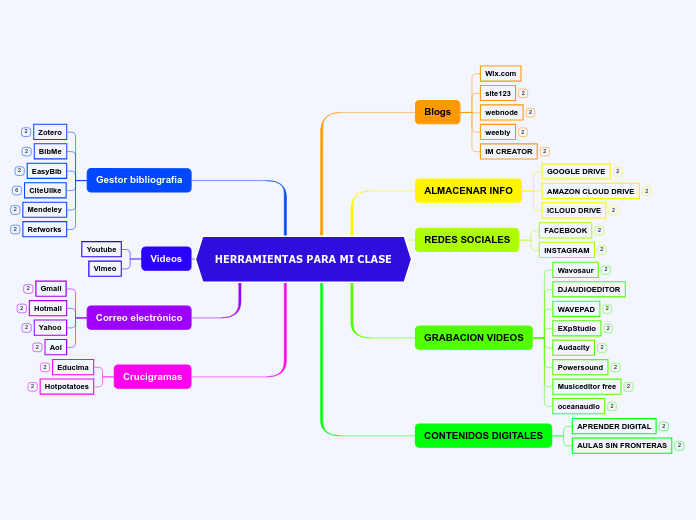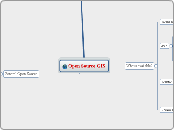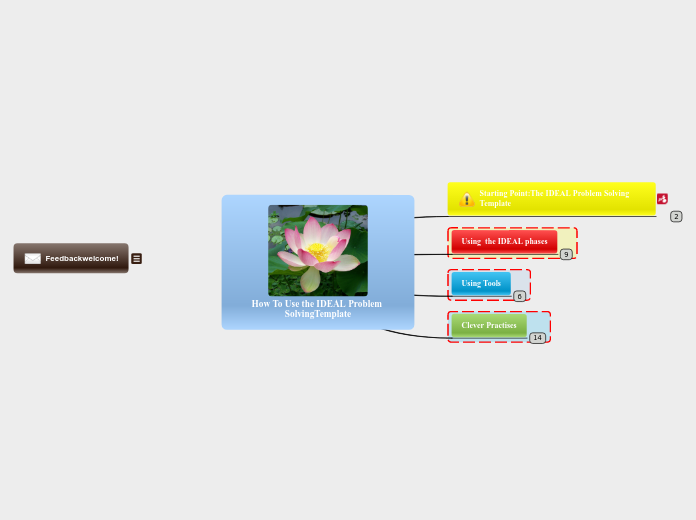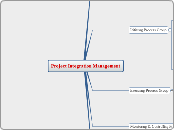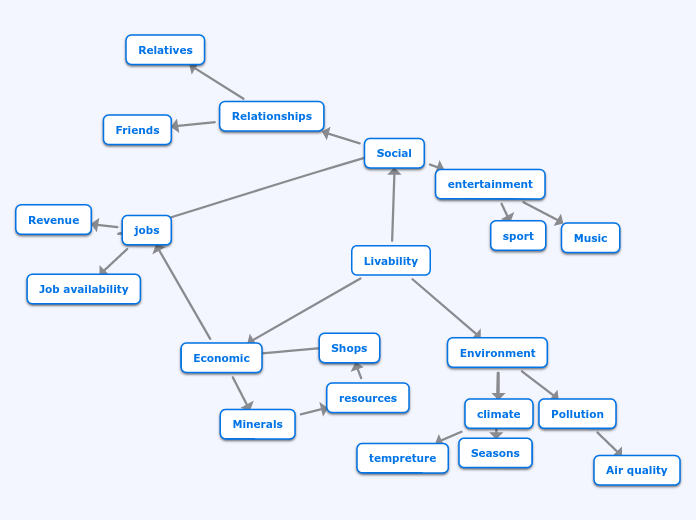HERRAMIENTAS PARA MI CLASE
The part of speech is a category to which a word is assigned according to its syntactic functions. In English the main parts of speech are noun, pronoun, adjective, determiner, verb, adverb, preposition, conjunction, and interjection.
Crucigramas
A conjunction is a word like 'if' 'but' or 'and' which is used to connect sentences or clauses together.
Hotpotatoes
Subordinating conjunctions are conjunctions that are used at the beginning of subordinate clauses. Some examples of these conjunctions are: although, after, before, because, how, if, once, since, so that, until, unless, when etc.
Although it was raining, I went out.
Educima
Coordinating conjunctions always connect phrases, words, and clauses. They are: for, and, nor, but, or, yet, so.
This stew is savory and delicious.
Correo electrónico
A preposition is one of the most exciting parts of grammar. A preposition is used to describe the location of something in relation to something else.
Aol
Participle preposition consists of words that end in “ing”.
regarding, barring, concerning, considering, etc.
Yahoo
When a preposition consists of more than one word, it is called double preposition.
into, within, upto etc.
Hotmail
Compound preposition consists of two or more words.
on behalf of, according to, in front of, from across, etc.
Gmail
When a preposition consists of one word it is called single or simple preposition.
in, at, on, to for, of, from, up, after, over, under, with, etc.
Videos
An interjection is used to express emotion in a sentence.
Think of other interjections!
Vimeo
Youtube
Gestor bibliografia
An adverb is used to describe a verb, but it can also describe an adjective or another adverb.
Adverbs normally help paint a fuller picture by describing how something happens.
Refworks
Especially, Specifically, Merely, Either
Mendeley
A lot, Little, Much
CiteUlike
The intensifiers strengthen adverbs adjectives and adverbs and down- toners make them weaker.
down-toners
Fairly, Rather
intensifiers
Extremely, Very
EasyBib
Just, Afterward, Soon, Currently
BibMe
Always, usually, Never
Zotero
Carefully, Slowly
CONTENIDOS DIGITALES
An article is a word used to modify a noun, which is a person, place, object, or idea. Technically, an article is an adjective, which is any word that modifies a noun.
AULAS SIN FRONTERAS
Indefinite articles are the words 'a' and 'an.' Each of these articles is used to refer to a noun, but the noun being referred to is not a specific person, place, object, or idea. It can be any noun from a group of nouns.
A car in the parking lot.
APRENDER DIGITAL
It refers directly to a specific noun or groups of nouns.
The breakfast on my plate.
GRABACION VIDEOS
A pronoun is a word that can be used in place of a noun, typically after the noun itself has already been stated.
oceanaudio
Unlike demonstrative pronouns, which point out specific items, indefinite pronouns are used for non-specific things. This is the largest group of pronouns. All, some, any, several, anyone, nobody, each, both, few, either, none, one, and no one are the most common.
None, Several
Musiceditor free
Relative pronouns are used to add more information to a sentence. Which, that, who (including whom and whose), and where are all relative pronouns.
Which, Where
Powersound
Interrogative pronouns are used in questions. Although they are classified as pronouns, it is not easy to see how they replace nouns. Who, which, what, where, and how are all interrogative pronouns.
Which, Who
Audacity
Reciprocal pronouns are used for actions or feelings that are reciprocated. The reciprocal pronouns are each other and one another.
Each other, one another
EXpStudio
A reflexive pronoun ends with ...self or ...selves and refers to another noun or pronoun in the sentence (usually the subject of the sentence). The reflexive pronouns are myself, yourself, herself, himself, itself, ourselves, yourselves, and themselves.
Itself, Himself
WAVEPAD
Demonstrative pronouns are used to demonstrate (or indicate). This, that, these, and those are all demonstrative pronouns.
This, These
DJAUDIOEDITOR
Possessive pronouns are used to show possession. The possessive pronouns are mine, yours, his, hers, ours, and theirs.
Wavosaur
The personal pronouns are I, you, he, she, it, we, they. More often than not (but certainly not always), they replace nouns representing people.
He, They
REDES SOCIALES
An adjective is a word that's used to describe a specific noun and to provide more detail to the listener.
INSTAGRAM
Superlative adjectives demonstrate a higher level of comparison between entities.
She is the prettiest princess.
FACEBOOK
Expresses a comparison between two entities or groups of entities in quality or degree.
He is taller than she is.
ALMACENAR INFO
A noun is defined as a person, place, thing or idea. Proper nouns always begin with a capital letter. Common nouns, which are general words, such as 'cars,' are not capitalized.
ICLOUD DRIVE
Compound nouns are words where two nouns have been stuck together to make a new noun. Compound nouns should be written as one word, without a hyphen.
Candlestick
AMAZON CLOUD DRIVE
A noun which refers to a group of things/people.
Family, Class
GOOGLE DRIVE
Proper nouns are the names of specific people or places. They should always begin with a capital letter.
Mary, Paris
Blogs
A verb is an action word or 'doing' word that signifies movement in some way.
IM CREATOR
An auxiliary verb helps the main (full) verb and is also called a 'helping verb.' With auxiliary verbs, you can write sentences in different tenses, moods, or voices.
You have been practicing hard.
weebly
A participle is a verb form that can be used as an adjective or to create a verb tense. There are two types of participles: Present participle (ending -ing) and Past participle (usually ending -ed, -d, -t, -en, or -n).
The winning athlete gets a trophy.
webnode
A modal is a type of auxiliary (helping) verb that is used to express: ability, possibility, permission or obligation. The main modal verbs in the English language are: can, could, may, might, must, shall, should, will, would.
I might go to the park if I get my homework done.
site123
A linking verb connects the subject with a word that gives information about the subject, such as a condition or relationship.
Create sentences
You look exhausted after studying all night.
Wix.com
A verb with its own meaning: a verb that is not an auxiliary verb.
